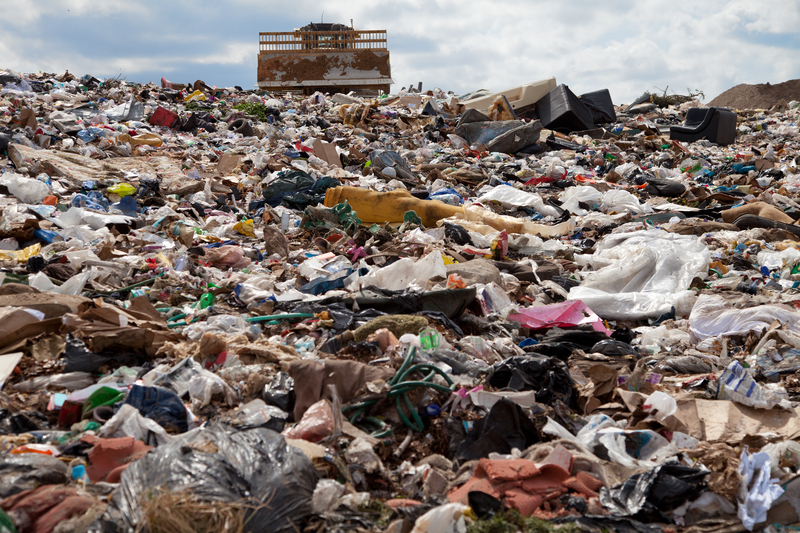How to Keep Your Budget in Check When Getting Rid of Bulky Waste Items
Are you wondering how to keep your budget under control when disposing of bulky waste items? From old furniture and mattresses to appliances and other large household goods, getting rid of these can be a daunting--and often expensive--process. Planning, researching, and smart decision-making are essential to prevent overspending and ensure your home stays clutter-free. In this comprehensive guide, we'll explore various budget-friendly ways to dispose of bulky waste items while highlighting everything from cost considerations to eco-friendly alternatives.
What Are Bulky Waste Items?
Bulky waste refers to items that are too large or heavy to be disposed of using regular household waste collection services. Common examples of bulky waste include:
- Sofas, couches, and armchairs
- Beds, mattresses, and box springs
- Refrigerators and freezers
- Washing machines, dryers, and dishwashers
- Wardrobes, desks, and tables
- Exercise equipment
- Carpets and rugs
- Bathtubs and sinks (from remodeling)
- Large outdoor playsets or grills
Understanding what constitutes bulky waste is the first step to managing your disposal process without straining your finances.

Why Bulky Waste Disposal Can Get Expensive
Bulky waste removal often commands higher fees due to:
- Specialized handling and transportation needs
- Landfill fees and environmental surcharges
- Labor required for lifting and moving heavy items
- Lack of free municipal services, especially in some districts
- Unexpected costs from improper disposal or illegal dumping
That's why keeping your budget in check when getting rid of bulky waste items is crucial--especially if you're dealing with multiple or particularly cumbersome objects.
1. Plan Ahead: Organize and Assess Your Bulky Waste
Before spending a cent, take time to assess which items you need to dispose of. Not every large item is destined for the landfill. Here's how to start:
Make a List and Prioritize
- Determine exactly which items are bulky and can't go in your regular trash.
- Separate things you might repurpose, sell, or donate from true waste.
- Take measurements and photographs--some services need this to give accurate quotes.
Sort for Recyclable or Hazardous Components
- Metals, electronics, and components containing hazardous materials (like refrigerators or electronics) may need special handling.
- Some components can be recycled for free or for cash. Consider metal recyclers, electronic waste points, or appliance buy-back programs.
2. Know Your Local Bulky Waste Disposal Options
Costs for getting rid of bulky waste items change dramatically depending on where you live and what services are provided.
Check Your Municipality's Guidelines
- Many cities offer annual or quarterly free bulky item pick-ups. Check your city's waste management website for schedules and rules.
- Some municipalities provide discounted collections for seniors or low-income households.
- Neighborhood clean-up events can be a golden opportunity for free bulky waste disposal.
Private Bulky Waste Collection Services
- When local pick-up isn't available, private bulky waste collectors are an option. Compare their pricing models--some charge by volume, some by weight or hour.
- Always request a written estimate to avoid hidden fees.
Drop-off Centers and Transfer Stations
- If you have a vehicle, you might save money hauling items yourself to a transfer station or drop-off site.
- Fees are usually lower than curbside pick-up and sometimes free for residents.
3. Explore Low-Cost Disposal Alternatives
Getting rid of bulky waste on a budget doesn't always mean spending at all! Here are creative and often free alternatives to paid disposal.
Donate Usable Items
- Charity shops, shelters, and non-profits often accept bulky furniture, appliances, and household items in good condition.
- Many offer free pick-up--saving you both effort and disposal fees!
- Request a receipt for donations that may qualify for tax deductions.
Sell Your Bulky Waste Online
- Hold a garage sale or post ads on local platforms such as Craigslist, Facebook Marketplace, or OfferUp.
- People often look for bargains on used furniture, appliances, or even materials for upcycling projects.
- If you're short on time, list items as "free for pickup"--often, they'll be gone within hours!
Recycle Where Possible
- Metal frames, electronics, and some plastics can be recycled separately at specialized centers.
- Check if retailers offer haul-away and recycling services for old appliances upon delivery of new ones.
Community Swap Events
- Participate in neighborhood swaps or Freecycle groups to pass on bulky items to those who need them.
4. Tips for Managing Bulky Waste Disposal Costs
Compare Quotes from Multiple Services
- Don't settle for the first bulky waste disposal company you find. Compare several to ensure the best value.
- Ask about minimum charges, per-item fees, and surcharges for difficult items.
Bundle Bulky Waste for Removal
- If you have several bulky items, schedule them for removal at the same time. This can cut down on per-trip fees.
- Coordinate with neighbors to share costs for joint pickups, especially in apartment complexes or communities.
Disassemble Where Possible
- Taking apart furniture, beds, or large appliances makes them easier and sometimes cheaper to remove.
- Some companies charge less for items that are flattened or compacted, as they take up less truck space.
Avoid Fines Through Proper Disposal
- Illegal dumping is not only harmful to the environment--it can result in hefty fines. Always follow local regulations for bulky waste removal.
- Keep documentation of disposal (receipts, confirmation emails) in case of disputes or inspections.
5. Additional Strategies to Save Money on Bulky Waste Removal
DIY Hauling - Is It Worth It?
- If you own a suitable vehicle (like a pickup or van), self-hauling may be the most cost-effective solution.
- Enlist help to safely lift and load large items--safety first!
- Balance fuel, wear-and-tear, and landfill fees against the cost of professional services.
Use Your Bulk Trash Allowance
- Many municipalities allow residents a certain number of free bulky item pick-ups per year.
- Plan your downsizing or remodel to coincide with these times to maximize savings.
Check for Utility and Manufacturer Take-Back Programs
- Some utility companies and electronics retailers offer free appliance recycling or rebates for turning in inefficient devices.
- Major retailers (like Best Buy or Lowe's) sometimes provide appliance haul-away with purchase.
Consider Rental Dumpsters for Big Cleanouts
- For large-scale cleanouts, renting a dumpster could be more economical than multiple pickup services.
- Gather neighbors or family to share the cost and fill the bin efficiently to get the most value.
Hire Responsible, Licensed Professionals
- Make sure your provider is licensed and insured--unlicensed operators may offer lower rates, but can illegally dump your waste, putting you at risk.
- Check online reviews and ask for references before booking.
How to Minimize Bulky Waste in the Future
The best way to save money on bulky waste disposal is to produce less of it. Consider these sustainable choices:
- Buy high-quality, long-lasting items to reduce frequent replacements
- Opt for products with modular or multi-purpose designs
- Repair and refurbish old furniture and appliances when possible
- Seek out rental and sharing platforms for seldom-used items
- Think before buying large items--can you rent or borrow instead?

Common Mistakes to Avoid When Disposing of Bulky Waste
- Ignoring free or low-cost options: Before paying for removal, check donation, resale, and city-provided services.
- Not measuring items: Your disposal service may need details to provide accurate quotes.
- Throwing away reusable goods: Reduce waste by donating or selling whenever possible.
- Last-minute scheduling: Emergency pickups often cost more. Plan ahead to avoid rush fees.
- Not reading the fine print: Some companies charge extra for stairs, long carries, or difficult items.
Final Thoughts: Smart and Budget-Friendly Bulky Waste Disposal
Dealing with bulky waste disposal on a budget doesn't mean compromising service or environmental responsibility. By researching your options, planning ahead, and using creative solutions like donation and recycling, you can keep your budget in check while reclaiming your space. Always follow local regulations, choose reputable providers, and don't forget to prioritize reuse and sustainability where possible.
Whether you're moving, renovating, or simply decluttering, smart strategies for handling bulky waste items can save you both money and hassle.